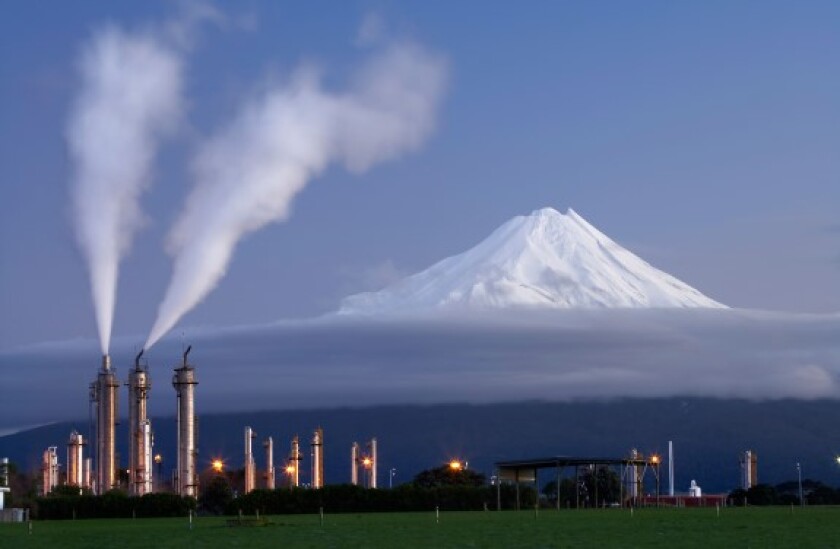The New Zealand government is set to become the first to enshrine financial climate disclosure standards in law after amended legislation last Thursday.
Firms will have to report annually on their exposure to climate-related risk and disclose greenhouse gas emissions, modelled on the recommendations set out by the Task Force on Climate-related Financial Disclosures (TCFD).
Roughly 200 firms will fall under its remit, including banks, credit unions and building societies with more than NZ$1bn ($717.3m) of assets, investment schemes and insurers with over NZ$1bn of assets under management, and all equity and debt issuers listed on the Kiwi stock exchange.
The country's financial system may be small compared with those of the UK, EU, Asia and the US but firms in the bigger markets should take note of what is happening down under. New Zealand may be the first to sign mandatory disclosures into law, but it will not be the last.
The UK, for example, is looking to introduce mandatory TCFD disclosures, and so too is Switzerland.
In the US, the SEC, now led by president Joe Biden's nominee Gary Gensler, set up a climate taskforce last month and will grapple with climate disclosures within its existing regulatory framework.
And Canada last year made non-financial companies agree to publish climate-related disclosures before they could access the Large Employer Emergency Financing Facility (LEEFF) during the coronavirus pandemic.
With the race now on to make TCFD standards mandatory, it would be wise for firms in other regions to start preparing now.
Even before New Zealand published its law, the country has been an interesting place for market participants to watch.
The New Zealand branch of the Australian banking group Westpac, for instance, released a climate risk report aligned with the TCFD standards last December, in which it concluded that roughly 2.3% of its residential mortgage portfolio was at risk from rising sea levels.
That means New Zealand is already giving foreign firms a taste of what climate disclosure standards should look like.
Of the 13 Kiwi banks likely to fall under the remit of the newly amended legislation, eight of them are owned by foreign entities.
The country’s four largest banks, ANZ Bank New Zealand, Bank of New Zealand, ASB Bank and Westpac NZ, are all subsidiaries of Australian firms, with its sixth largest a local branch of Rabobank.
The other firms likely to qualify are local branches of the Bank of China, Industrial and Commercial Bank of China, and China Construction Bank — all three rank among the largest fossil fuel financiers, according to the Rainforest Action Network.
New Zealand is blazing the trail for mandatory climate reporting standards.
Firms should be taking their cues from the country and getting on with work that is already looks long overdue.

